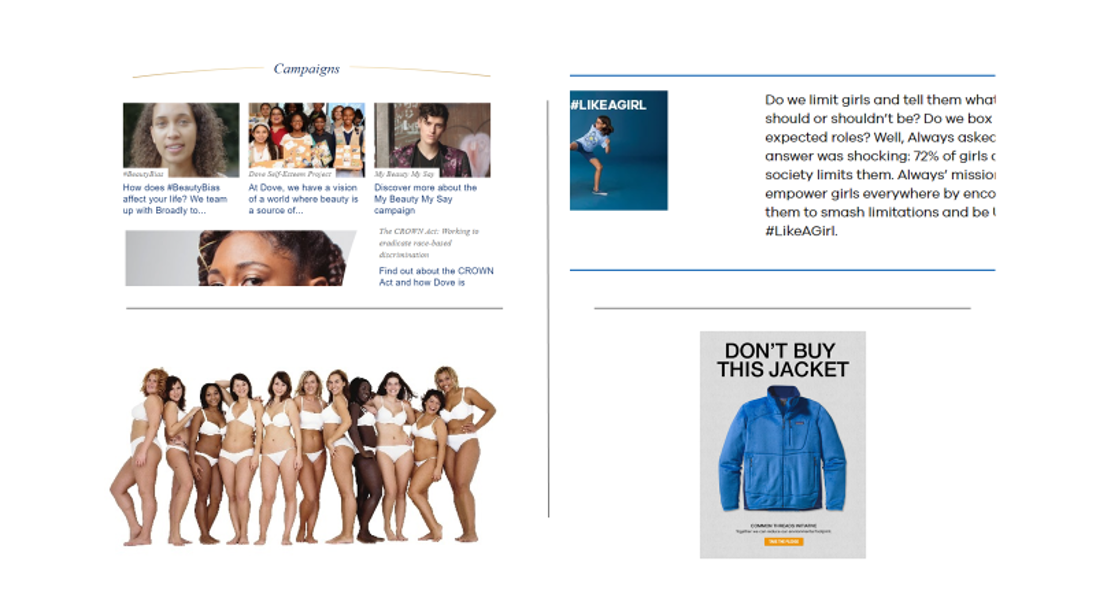Purposeful Brands : An Old Concept Relevant In The New Age, By Vikram Korde
CMOs : Stop forcing social purpose on all your brands

This is my first op-ed on the subject and for the first time, despite a lot of research on the subject, I have not seen any real controversial disagreements on whether your brand should have a purpose. However, like all things new and mostly backed by questionable research, the popularity of this subjects seems to ebb and flow with good and bad examples being paraded in social media. I believe it is a necessary tool, though neither new and definitely not for all brands.
When the “purpose-fever” grips an organisation there are CMOs that want all their brands to have a social purpose. This is usually driven by a desire for brand growth (at least partially) and also to a large extent by the desire for personal fame (after all, they have seen the cases of Dove “real beauty” and Always “like a girl”). While their teams struggle to fill “purpose templates” and “have a roadmap” to purpose, they are not entirely convinced they should do it. After all, if you sell basic candy bars, does having a purpose make sense ?
You could argue that responsible sourcing of cocoa could be the purpose and makes sense to all. The problem with that approach is, consumers expect you do responsible sourcing of cocoa anyway. Not just you, but, all candy manufacturers. Then, it becomes the ticket to being in the category, not really a distinctive brand purpose, does it ?
To force purpose on all brands just means diverting your limited funds away from building great consumer experience and distinctive assets and also means running the danger of being exposed as fake to consumers because, well, it may indeed not be authentic.
Brands having a purpose is nothing new
No, this is not a woke phenomenon. No, it is not Gen Z that accorded importance to it. Brands with purpose may appear to be a new concept, but, it has always existed in some form or another. As an example, the introduction of the first commercial soap brought a small but positive change to the way society managed hygiene. Early commercial endeavours were all about bringing some solution to society – solving a problem or a need. This led to talkability and hence built brands. Now, many brands are vying for the same space in consumers’ minds.

Except, now, the efforts needed to make such a difference in society are significantly high, especially in some basic, every-day, mundane categories as we have seen above. It becomes even more difficult when there are a dozen other competitors in the category. Jumping on the purpose band wagon therefore, is not easy.
Brands with purpose grow faster than those without
Brands & businesses with purpose grow twice as fast as other brands – proven by, among other researchers, Kantar. Not surprising, since businesses with purpose are relevant to society. When you speak about socially relevant subjects, people listen. Ergo, they listen to you instead of to another brand or business that just speaks of shinier hair or tauter skin. Consumers tend to be more engaged with societal issues than just whiter teeth.
Given that consumers are increasingly conscious of the impact of their consumption habits on the planet and people, it is important that brands become socially conscious and adopt the right posture & tone. The choices & actions of corporations are important for consumers and should be treated carefully. Once the brand purpose becomes an aligned company-wide strategy, you start making a real difference to all stake-holders and you have a thriving enterprise. Logically a strong brand purpose leads to a clear corporate purpose, backed by a clear brand activation plan.
Creating the purpose-led brand
There is no algorithm, despite what gurus tell us. Every brand is different and there are several societal challenges to hitch your star to. Some steps to consider
- RELEVANCE : Start off with a really relevant issue, either around people or planet. By nature, it should be a “high reach” concept that instantly creates relevance with most of the population & definitely with category buyers.
- REAL ACTION : Secondly, figure out if you can genuinely do something about it ? Real, on the ground actions that actually make a difference have PR legs. If you cannot take a direct action, even taking on the role of raising awareness of the issue and building a platform to voice concerns are very legit actions. These actions drive your brand’s credibility and people believe it when you associate yourself with the purpose. If you do neither, do not talk about it purpose.
- MATCH BRAND NARRATIVE : Thirdly, ensure that the stories you tell fit the brand narrative and there are no obvious contradictions. If you sell candy and wish to talk genuinely about health and obesity, better have all your ducks in a row & tell the story right – after all, you will be contributing to that obesity ! 😊
In summary, be Relevant, take Real Action, be Credible, create a narrative that fits the Brand & most of all, be Distinctive. Do not trivialise (like Pepsi’s Kendall Jenner ad : ) in the hope of creating impact and do not treat it as a one-off action. Your purpose-led brand will do well !





